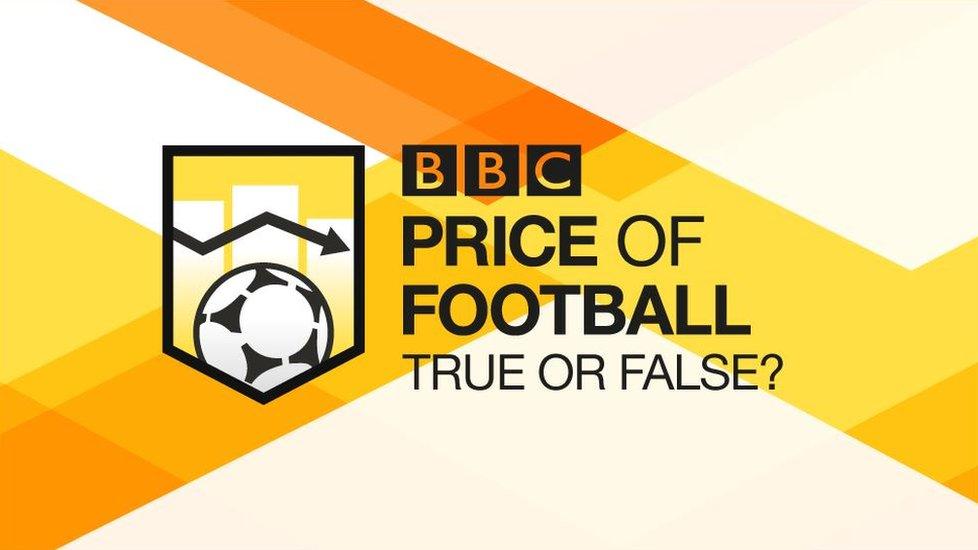Price of Football 2016: What do results mean for fans, clubs & the sport?
- Published
Price of Football: Dan Johnson and Malcolm Clarke discuss premier league prices
The BBC's Price of Football 2016 study has shown the cost of attending a Premier League match has fallen in the first season of a record £8bn global TV rights deal.
Here we look at some key questions in light of the latest numbers from the biggest study of its kind in Europe.
As top clubs get richer, is the rest of football?
Richard Conway, 5 live sports news correspondent
Scudamore surprised at size of TV deal
The Premier League has never been richer, with UK and overseas TV deals handing clubs £8.5bn in revenue over three seasons.
However, the way the money is divided up between the clubs is one of the most equitable in world football - the ratio between what the champions earned and what the club languishing in 20th place received was just 1.52 to 1 last season.
Once variable payments for TV appearances were made, Arsenal emerged as the top earners, collecting £101m, with Aston Villa picking up £66m despite being relegated.
The Premier League believes this demonstrates that competitive and financial balance within the league is alive and well.
But this season, the new TV deals kicked in - meaning the clubs will earn even more.
That has led to concerns over rampant wage inflation among players - but the majority of Premier League clubs have posted operating profits in recent seasons, so as long as the revenue levels are maintained or continue to rise, then big salaries are set to stay.
Parachute payments to relegated clubs have also continued in order to help bridge the financial gulf between the Premier League and EFL.
Last season payments ranged from £25.9m to recently relegated clubs such as Hull City and QPR through to £10.5m to the clubs relegated three and four years ago who are yet to return, such as Blackburn Rovers, Bolton Wanderers, Reading, Wigan Athletic and Wolves.
Are Premier League clubs listening?
Natalie Pirks, BBC sports news correspondent
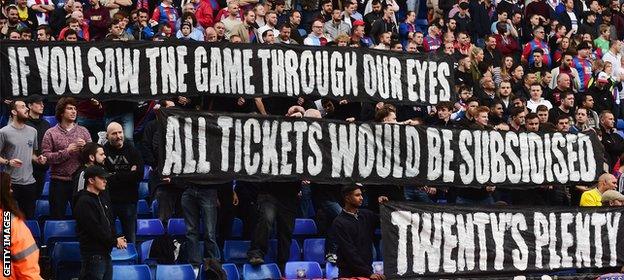
Premier League football fans don't have to pay more than £30 a ticket to watch their team play away, with Southampton charging only £20
After a concerted effort by organisations such as Spirit of Shankly, the Liverpool fans, group, and the Twenty's Plenty campaign, Premier League clubs voted unanimously in March to cap away ticket prices at £30 for the next three seasons.
The Premier League says in a statement that it shows "clubs are listening to their fans and working hard to make sure that Premier League football is accessible, as well as competitive and compelling".
It does - but fan groups argue that, given the bumper global TV rights deal, they could still do even more.
Malcolm Clarke, of the Football Supporters' Federation, put it into context, saying: "If I tell you that with their £8.3bn deal, they could afford in the Premier League to let every single fan in free for every game, and still have as much money as under the previous deal, that gives you an idea of the scale of money they've got."
How the Premier League is cutting the cost of football
For club boards, this is a very real problem; how to maximise their profit without making fans - the lifeblood of the game - feel like they're being taken for a ride. Burnley's chief executive David Baldwin explained to the BBC why they have frozen prices.
"We're seeing living costs go up, we're seeing utilities go up at home and fuel going up," he said. "People operate on a budget, so if we can help contribute by being sustainable and at the same time being accessible and affordable to supporters, then that's a win-win for all parties because ultimately you want fans in the ground cheering the team on."
And the Premier League agrees, with a spokesperson saying: "Full and vibrant grounds are a significant part of what makes the Premier League a great football competition."
But with prices of things such as half-time pies, cups of tea and children's replica shirts on the increase, modern-day football continues to be a season-on-season test of fans' loyalty.
What is the fans' perception?
Phil McNulty, chief football writer
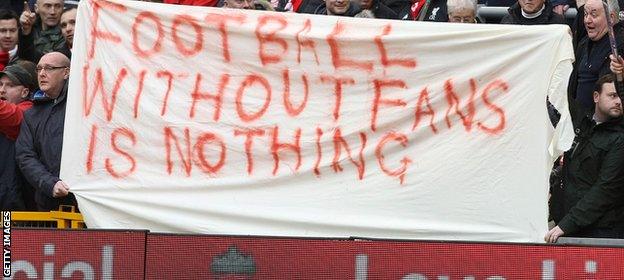
Liverpool fans walked out on the 77th minute in their match against Sunderland in February to protest against plans to increase their dearest ticket to £77
I think there is a growing awareness among fans in the Premier League, which is where I watch games as well as the Champions League, of the sort of money clubs are earning through attendances and the last TV deal.
This has certainly made them more switched on to the prices they are paying and making them more willing to speak out when they feel clubs can make things more affordable.
In other words, the price of football is now something that is really locked into their consciousness and there is no sign that is going to change. They are less likely to be taken for granted now.
I was at a Liverpool game towards the end of last season, and in a general chat with a fan, he was very keen to discuss pricing policy at football matches and how it needed to be controlled.
It came after a protest at Anfield in February, when thousands of fans walked out in the 77th minute of Liverpool's game against Sunderland because of plans, later withdrawn, to raise ticket prices to £77.
Liverpool's owners scrapped the plan, saying they had been "mistaken".
The Liverpool fan I spoke to said this demonstrated supporters still carried power to stop prices getting out of hand.
He said: "One thing I can't stand, and there is a banner at Anfield saying the same thing, is when supporters are described as customers - and I don't particularly mean Liverpool when I say that.
"We support our club but we're not customers. We can't just take our business elsewhere because prices are too high. It doesn't work like that as a football fan.
"We are loyal to the club, and we have an emotional attachment but that doesn't mean we can't make our feelings known when we think something is wrong."
Has the Premier League now maximised TV earnings?
Adam Parsons, BBC Newsnight
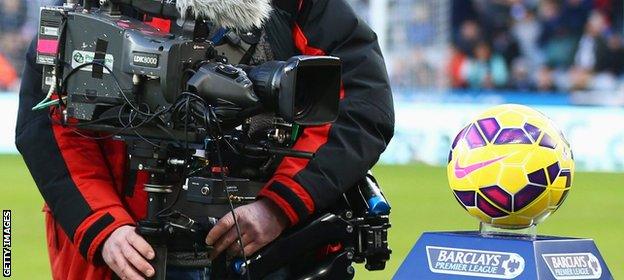
Sky and BT Sport have paid a record £5.136bn for live Premier League TV rights for three seasons from this season
Every time a Premier League TV rights deal is signed, two things happen. Firstly, people whistle and say the figure is incredible - because it is. Secondly, someone predicts that we've reached the ceiling. And that prediction has (almost) always been wrong.
Ever since Rupert Murdoch decided that top-flight English football would be the "battering ram" to persuade waverers to become Sky subscribers, money has flooded into football. The last Premier League deal was worth more than £8bn, a huge increase on the previous deal.
Why? Well, TV companies see football as a way to persuade big audiences to maintain a subscription. And advertisers like football, too - just look at the expensive ads that crop up at half-time. And subscriptions and adverts are what subsidises those huge rights deals.
Recently, though, viewing figures have dipped, which might suggest the price would come down. But the field of bidders seems to be getting wider - Sky may face competition from BT, Amazon, Discovery, ESPN and others next time around, while the global and internet rights are sure to rise, too. I'd be surprised if we've reached a ceiling.
How can the EFL secure its own mega TV deal?
Adam Parsons, BBC Newsnight
It's hard to see how the Football League can get to mega levels. Yes, the number of companies bidding for content has gone up - and English football is certainly a draw. It's easy to imagine the likes of Discovery or ESPN wanting to bid for Championship matches, but they won't pay anything like the money that goes to the Premier League.
Brighton and Hove Albion have a turnover of about £24m at last measure - that's about the same as Manchester United generate in a fortnight. The Football League TV deal is a fraction of the Premier League's.
But if you're an aspiring Championship billionaire, here's a thought. Wolves have signed a deal this season to broadcast 10 of their games on a Chinese pay-per-view broadcast channel.
Yes, Wolves are owned by a Chinese company, but what's notable here is that they've done their own deal, away from the league's collective bargaining agreement.
If that catches on, it might generate more money - but it could also widen the gap between the Championship's rich and not-so-rich teams.
How else can clubs make money?
Adam Parsons, BBC Newsnight
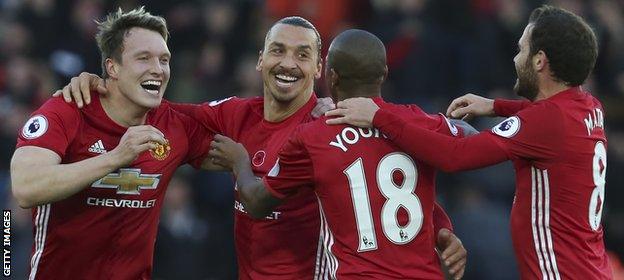
Manchester United are the most profitable football club in England and signed a £750m 10-year kit deal with Adidas in 2014
According to the club's website, Manchester United now have 25 official partners. The most r`ecent name to add to the list was a company called Mlily, which became United's official global pillow and mattress partner. And yes - in football, we now have partners, not sponsors.
There is no team in Britain to touch United when it comes to making money. The club's commercial income was £260m last year, enhanced by a kit deal from Adidas that pays around £75m per year.
The club's commercial tentacles have crept around the world and, for all the abuse that has come their way, the impetus for that has come from the arrival of the Glazer family a decade ago.
They brought with them a very American focus on marketing, which has now become commonplace in England's top tier.
So Watford have an official foreign exchange trading partner; Arsenal have an official Indonesian telecommunications partner and just about everyone has an official betting partner. Manchester City have 35 official partners, including a phone company in Cameroon.
And that's where the future lies.
As the Premier League's popularity grows around the world, the commercial opportunities will grow in tandem.
China and South-East Asia are seen as huge market - but it may not be an equal battle. Clubs with established reputations, notably Manchester United, Liverpool and Arsenal, will find it easier to sign big-money deals than anyone else.
Subscribe to the BBC Sport newsletter, external to get our pick of news, features and video sent to your inbox.
- Published16 November 2016
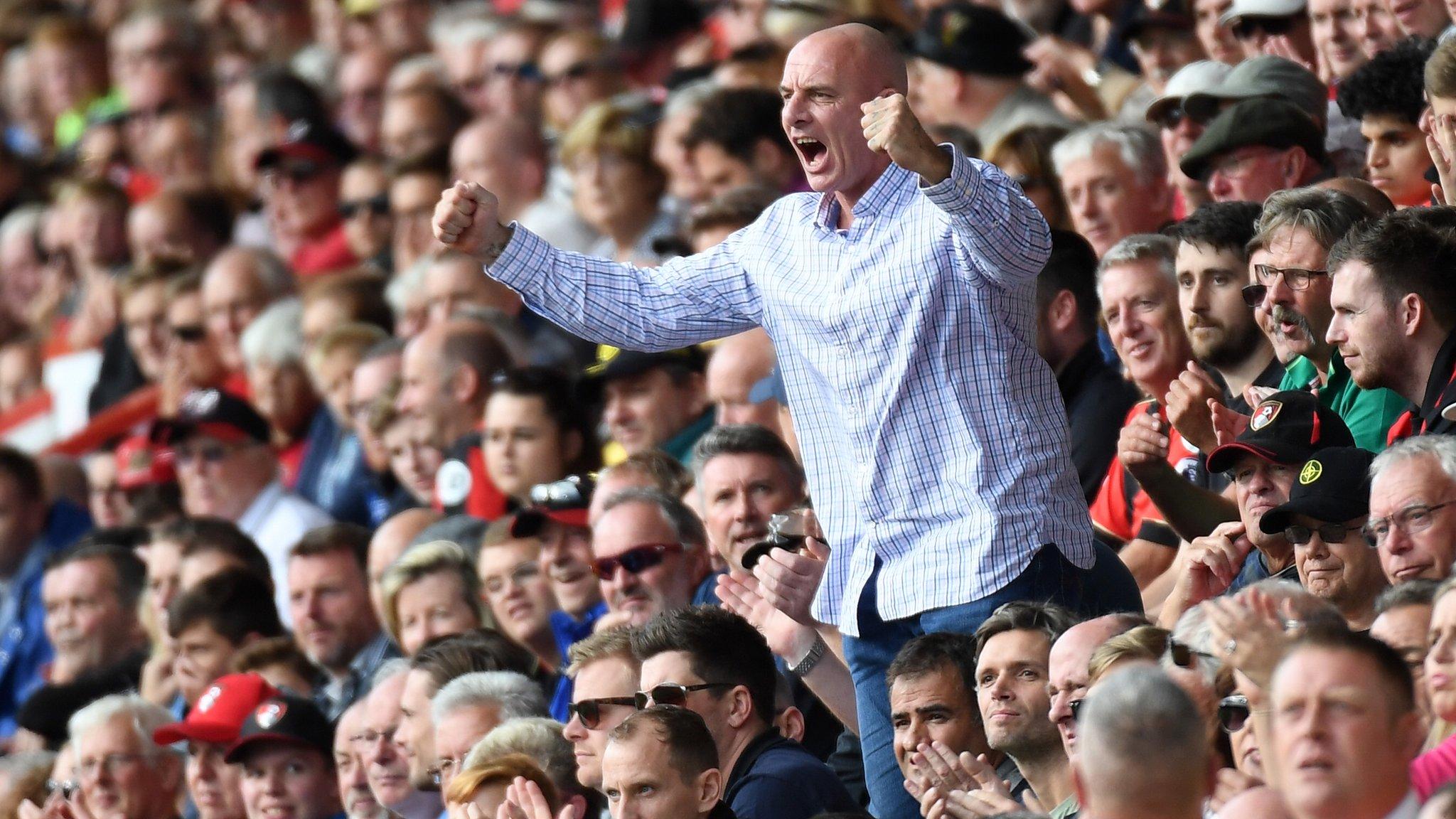
- Published16 November 2016
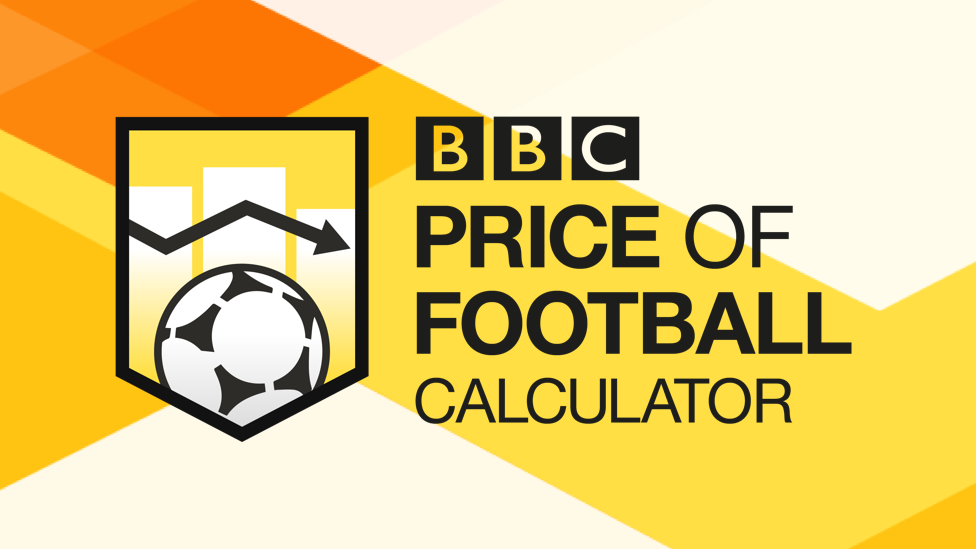
- Published16 November 2016
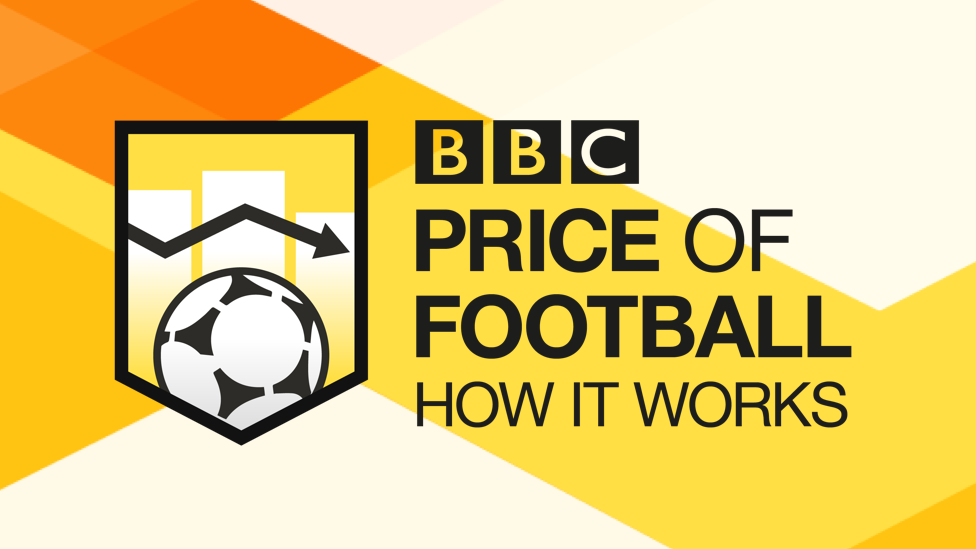
- Published16 November 2016
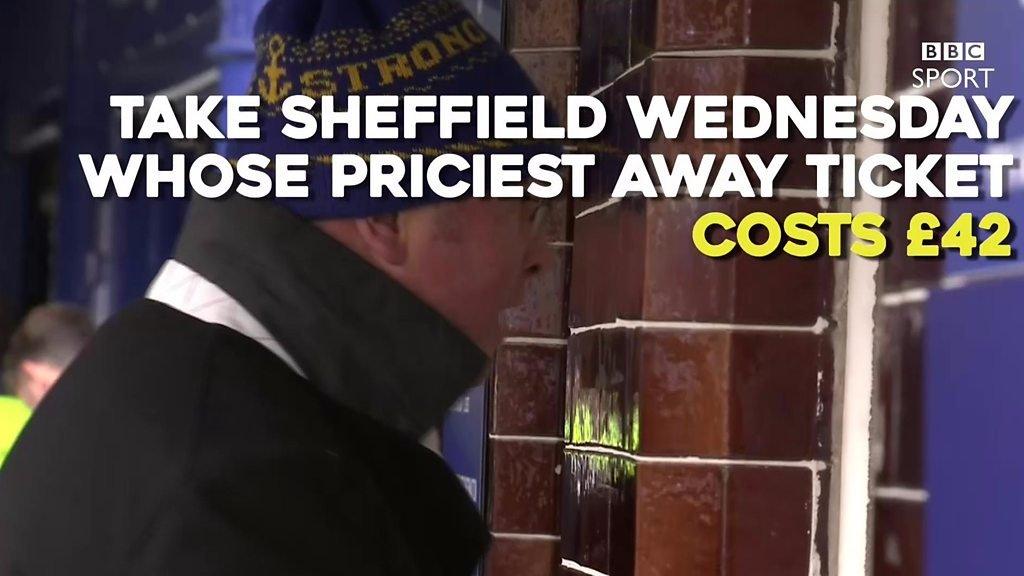
- Published16 November 2016
